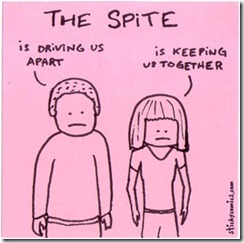"Just about everybody" I know is not flying on a plane this summer, and to assume otherwise might be an indication of the bubble you live inside.
/I like the Freakonomics podcast quite a bit, and if I could choose a new friend, I think I'd take Steve Levitt, an economist and co-author of the Freakonomics books who loves golf and McDonald's and seems to share my disposition.
Every time I hear him speak, I think that we would be fast friends.
Yesterday, I was listening to an episode on flying when I heard Levitt's co-author and producer and host of the podcast, Steven Dubner (who I also like a lot) open the show by saying:
“It is nearly summertime, which means that you, and just about everybody you know, will soon be getting on an airplane.”
Either Dubner is making an enormous assumption about his audience demographics or he is living in some kind of bubble where everyone in his world flies to exotic locales during the summer.
While I have friends who are flying places for vacation, I also have friends who have never set foot on a plane once in their lives.
I have friends who can't afford to take a vacation this summer.
I have friends who don't have paid vacation as part of their employment.
I have friends who can't afford airline tickets for their family to fly this summer.
And I will not be getting on a plane this summer, as much as I might like to. I'll be working quite a bit - teaching, speaking, and writing - and we simply can't afford the four airline tickets to whatever destination we might choose.
"Just about everybody" who I know is not flying this summer, either. Some are. Some are not. Perhaps this is reflective of the economic diversity of the people I know, but I don't think so. I suspect most people who aren't living in a bubble have friends like mine.
Some of greater and some of lesser means.
I love you Dubner, but that was not a good sentence.

